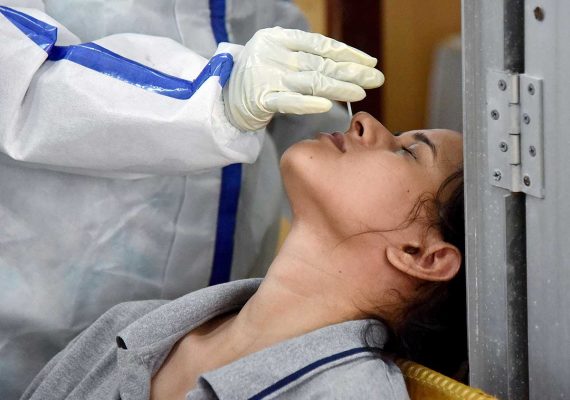
Chief scientist of the World Health Organisation Soumya Swaminathan on Saturday said there should be more COVID-19 tests as there was heterogeneity (on testing methods) among the states.
“Testing is really an important issue. At the beginning, WHO found that many countries did not have diagnostics and those which had it was not enough. In fact we found out that diagnostics was lower than it should be,” she
said while addressing a session at ‘Shaastra’ organised in Chennai at the Indian Institute of Technology-Madras.
Stating that WHO has set a benchmark for how much diagnostics in testing was enough, she said if the positivity rate (of a disease) was five per cent or more, it means you should be testing more.
“There is a lot of heterogeneity in response to testing between state to state and some states have done higher than the others,” she said.
“Tamil Nadu has done well in terms of testing and the Health Department had set up fever clinics in Chennai, when the cases were going up. So, the strategy needs to be decentralised,” she said.
Swaminathan said it was not only the Health Department that needs to cope up but also all other departments which have to play a role in providing additional food and service when people lost their jobs, when families were in distress due to the pandemic.
“We now understand the disease (COVID-19) better understand epidemiology and it is super-spreader. We know that only 15-16 people who are infected are responsible for the remaining 85 people. We need to be able to identify those situations where these kinds of super-spreaderscan happen,” she said.
“I think that (testing for COVID-19) will continue through 2021 as well,” she remarked.
Swaminathan said some low-income countries have done better than the high-income countries as community health workers in (the low-income countries) came to the rescue when COVID-19 outbreak happened by means of visiting houses, checking of new infections.
“In low-income countries, the whole workforce for contact tracing, visiting houses, engaging community health workers are the ones who actually came to the rescue but whereas in the developed world, where the medical system is well advanced, public health system was neglected. Over the years that aspect collapsed,” she said.
She said these are the lessons to be learned whether the country was rich or poor and a country can learn from what went right and what did not go well so that the country can make those corrections.























